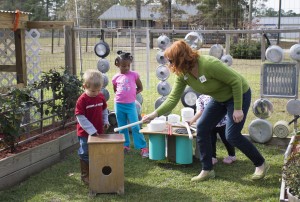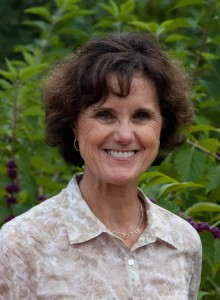Dianne Ward
May 5, 2016
Dianne Ward, EdD, knows the importance in the area of nutrition of starting early in a child’s life to develop an awareness and culture of health. She helped pioneer the successful Nutrition and Physical Activity Self-Assessment for Child Care (NAP SACC), first piloted in 2003 in 19 counties in North Carolina. The program includes self-assessment, action planning and educational tools that help early child-care and education programs set goals and make improvements to their nutrition and physical activity practices.
“We observed that programs could make positive changes in what they gave children in provisions, practices and policies regarding food and physical activity,” says Ward, professor and director of the Intervention and Policy Division in the UNC Gillings School’s Department of Nutrition. “By connecting young children and their families to the importance and availability of higher-quality diets, we are building an environment that develops healthy eaters in these formative years.”
After making its way to nearly every state in the U.S., NAP SACC is now being implemented in the United Kingdom.
The program has evolved into Go NAP SACC, an online program developed with support from the Blue Cross and Blue Shield of North Carolina Foundation.
“Go NAP SACC is an interactive website with a suite of tools to help child-care programs improve their work and exercise,” says Ward. “The site draws traffic from throughout the world.”
Go NAP SACC extends the reach of the program to family child-care homes, in addition to the child-care centers targeted by the original program. There are now standards and resources for children ages birth to five years, extended from the original focus on children ages two to five years. The site also includes information on breastfeeding and infant feeding, screen time and outdoor play.
“One of the newest things under development is an oral health module,” says Ward. “Oral health begins before the emergence of baby teeth. Families can be educated about how to implement best practices for oral hygiene, and early childhood education settings are a great place for this to happen.”
This element builds on the highly effective oral health programs developed under the leadership of Gary Rozier, DDS, research professor of health policy and management at the Gillings School.

Child-care health consultant Terri Walls plays on homemade drums with children at Ms. Jackie’s Place Family Child Care Home in Craven County, N.C. (Photo by Stephanie Lane)
Future plans also include strengthening parent engagement by more closely linking child-care providers and parents and by fostering wellness in child-care providers themselves.
“We also hope to develop, with N.C. State University, a module that will link local farmers with preschools to educate children and families about the roles of foods and farmers in our communities and to provide food for the preschools,” says Ward.
“We are helping child-care programs improve the quality of nutrition environments and physical activity support they give children, and in return, they give children the opportunity to grow and develop optimally. For too long, we have ignored the health component of preparing children for school. Now, the movement nationally is to see the whole child — mind and body.”
Dean Barbara K. Rimer says that NAP-SACC is a great example of how faculty members at the Gillings School design and test innovations in program delivery.
“But they don’t stop there,” Rimer says. “They work with partners such as Blue Cross and Blue Shield of N.C. to scale up effective programs to benefit millions of people across North Carolina and around the world.”
—Michele Lynn
Carolina Public Health is a publication of the University of North Carolina at Chapel Hill Gillings School of Global Public Health. To view previous issues, please visit sph.unc.edu/cph.

